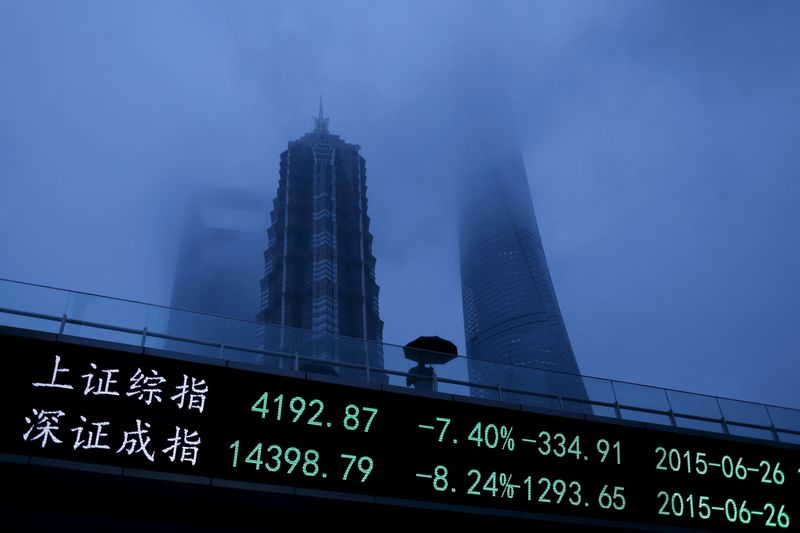Investing.com — Wells Fargo strategists believe Chinese stocks are “ahead of reality” after a sharp rally in the country’s stock market.
From September 9, 2024 to October 7, 2024, the Index rose nearly 40%, driven by various economic and policy announcements. The moves have fueled optimism among investors that China’s economy may be on the brink of a real recovery, despite grappling with a protracted real estate crisis that has weighed on both consumer and business confidence.
Wells Fargo strategists remain unconvinced, however, as they believe the recent recovery is “another false dawn.”
They cite several factors, including the “time it will likely take for consumers to rebuild their real estate-constrained balance sheets, a declining population, continued regulatory uncertainty, high government debt levels and a rise in global trade protectionism.”
Moreover, the upcoming US elections could create headwinds, with both major political parties calling for a tougher stance on China. Higher tariffs and stricter rules around technology transfer are likely to be among the first steps of a new government.
Given these risks, Wells Fargo strategists suggest that investors will use the recent rebound in Chinese stocks as an opportunity to reduce exposure to China and emerging market stocks, areas where they remain unfavorable.
Instead, they recommend focusing on U.S. large-cap stocks, as well as sectors such as energy, communications services, financials, industrials and materials, “for potential opportunities amid all the election-related volatility.”
Although the MSCI China Index is still in an uptrend, it is “incredibly overbought,” notes Wells Fargo.
In the event of a pullback, support could be found at the 50-day moving average (58.85), followed by the 200-day moving average (57.05). Resistance is expected around the high of 76 in mid-2022 to early 2023, the bank said.
Hong Kong and Chinese stocks fell after disappointing economic data highlighted the need for Beijing to take fiscal measures to support growth.
The price fell 3.7% to 20,318.79, marking the second straight day of losses. The Index suffered an even sharper decline, falling by 4.7%. On the mainland, the Index lost 2.7%, while it fell 2.5%.
Chinese exports grew just 2.4% year on year in September, the slowest pace since May, customs data showed.
In addition, commercial banks issued 1.6 trillion yuan ($226 billion) in new loans last month, missing the 1.9 trillion yuan consensus forecast from a Bloomberg survey of economists.
Broader credit supply, as measured by total financing, also slowed from the previous month, reflecting tepid domestic demand.


